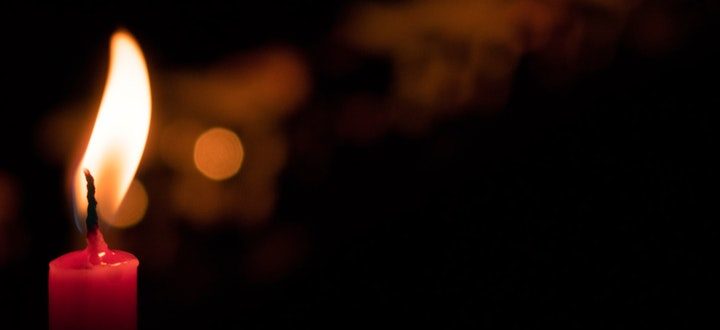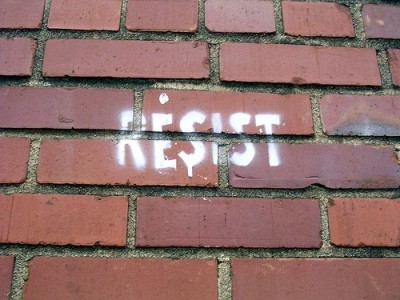
Dec 3, 2018 | by Rabbi Lisa Goldstein, Former Executive Director, Institute for Jewish Spirituality

Hanukkah is upon us and with it the aptness of all the metaphors of bringing light into the darkness. A less examined theme of the holiday, however, at least in many spiritual circles, is holy boldness – the decisive action that the Macabees took in the face of seemingly insurmountable odds that enabled them to defeat the wicked government that vastly outweighed them.
We tend to shy away from exploring this kind of strong action because it can seem so antithetical to the spiritual endeavor of finding inner peacefulness and because it can too easily veer into bold fanaticism, as the Hasmonians themselves exemplified. And yet, holy boldness, the courage of the spiritual warrior, is an important middah, or trait, even (and maybe especially) for the contemplative repertoire.
One teaching on how to approach this boldness comes from the daily liturgy. In the morning service, the first prayer before the Shema offers an image of angels. The prayer book describes the angels in vivid terms: “They are all loved, they are all clear, they are all bold and they all do the will of their Maker with fear and awe.”
At first, the description appears rather random. Why those three particular adjectives, other than the fact that the Hebrew words for “loved,” “clear” and “bold” follow the order of the Hebrew alphabet? But if we look carefully, using what we know from our contemplative practice, something quite beautiful emerges.
First, the angels know that they are ahuvim, loved. This is the crucial first step, to take in the awareness of being precious, seen, cherished. From that place of warmth and connection, they can be brurim, clear. Feeling loved can help clear the delusions so that we can see with greater clarity what needs to be done, as well as our motivation for acting. And then, when the path forward is clear, the angels can act as giborim, as courageous and bold heroes. But even here, they are aligning themselves with humility and a sense of serving – not of their own will, but of the great Source of life and creativity in the universe.
What marvelous instructions! A courage that is rooted in love, shone through with clarity and in humble alignment with what needs to happen. May this Hanukkah provide us with opportunities to explore this holy boldness so that we can through our actions help bring more light into this dark season.

Jan 31, 2018 | by Rabbi Lisa Goldstein, Former Executive Director, Institute for Jewish Spirituality
 There are times when joy is an act of resistance.
There are times when joy is an act of resistance.
I have to remind myself of that occasionally. On these days when there is so little daylight, when the headlines are so dire, when my beloved home state of California has been engulfed in flames, joy can feel like an effort that is just too heavy.
Sometimes joy is characterized as wimpy or self-indulgent. It is seen as being something private or even selfish, with little or no bearing on the larger community. But part of what we come to know experientially through our practice is how interconnected things are. Through contemplatives practices I come to see how much my inner experience is shaped by the expectations and habits of the world around us and how I contribute in seen and unseen ways back into the expectations and habits of the world.
So when fear, greed or anger are dominant around me, I often experience those unpleasant emotions more readily. And when I experience these things – and even more so when I act upon them – I add more fear, greed or anger back into the system.
Alternatively, when joy, generosity or gratitude are dominant around us, I can experience those emotions more readily. When I act upon them, I can strengthen those middot in the larger culture. Our joy is so much more than our own small story. It is an expansive energy that reaches out with a light heart towards connection, forgiveness and possibilities. Real joy can be contagious and ripple outward.
That’s why joy can be an act of resistance. Cultivating a joyful heart can be a way of saying no to fear, greed and anger. It can defy the diminishing light, both real and figurative. It can clear away the space for an opening, for newness, for real delight.
In the Talmud, the House of Hillel disagreed with the House of Shammai as to why we light Hanukkah candles. Shammai’s version was more reliably grounded in the historical record, but Hillel’s argument was simple: Adding more light adds more holiness. My experience over Hanukkah showed that Hillel had it right. The growing light, night to night, lifted my heart. I felt my joy growing too from its hidden holy source. It is not so easily extinguished, after all. And that is a true blessing.
Photo Credit: Huffington Post




 There are times when joy is an act of resistance.
There are times when joy is an act of resistance.